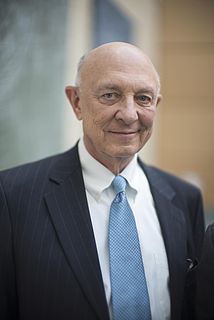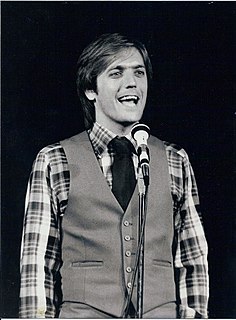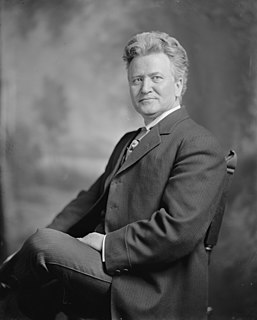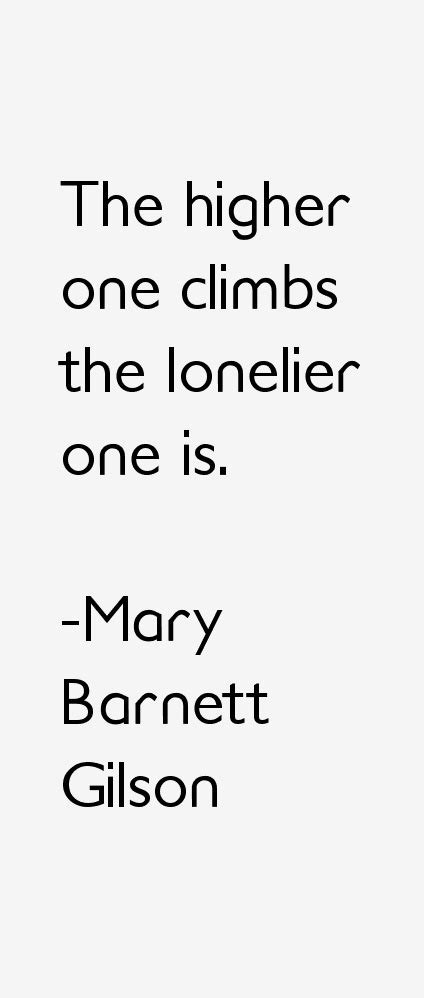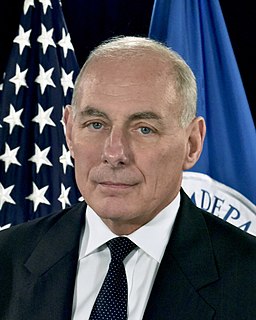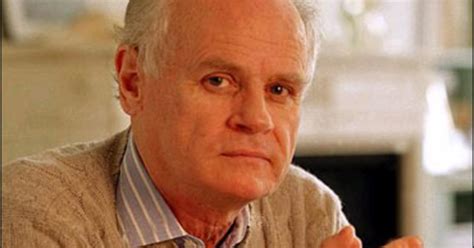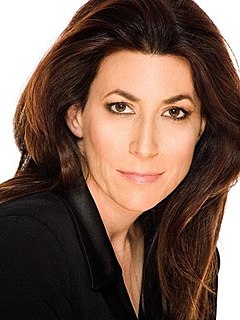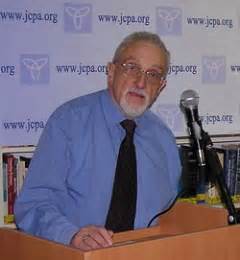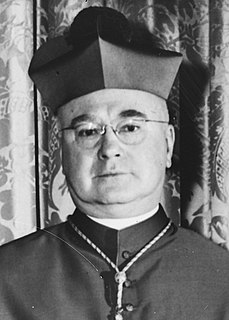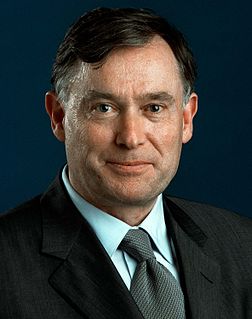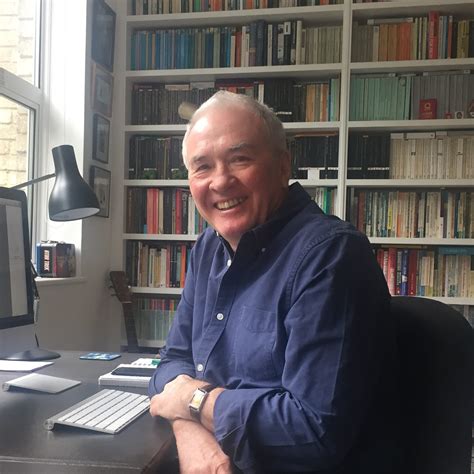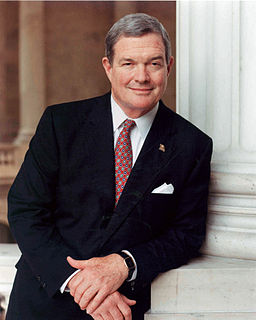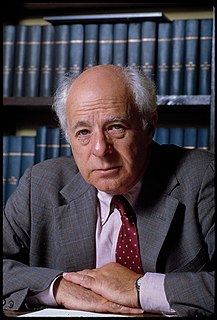Top 1200 World War One Quotes & Sayings - Page 4
Explore popular World War One quotes.
Last updated on November 16, 2024.
We are constantly trying to cope with what our fathers or our grandfathers did. I wrote the book 'Great War of Civilization,' and my father was a solider in the First World War which produced the current Middle East - not that he had much to do with that - but he fought in what he believed was the Great War for Civilization.
Particularly when the war power is invoked to do things to the liberties of people, or to their property or economy that only indirectly affect conduct of the war and do not relate to the engagement of the war itself, the constitutional basis should be scrutinized with care. ... I would not be willing to hold that war powers may be indefinitely prolonged merely by keeping legally alive a state of war that had in fact ended. I cannot accept the argument that war powers last as long as the effects and consequences of war for if so they are permanent -- as permanent as the war debts.
I was born just after the end of World War II, and with my friends in our little suburban backyards in New Jersey, we used to play war a lot. I don't know if boys still play war, they probably do, but we were thrusting ourselves into recent history and we were always fighting either the Nazis or the Japanese.
A war film can be propaganda and they're very valuable as propaganda, as we realized in Britain in the Second World War. Film as propaganda is a very valuable tool. It can also demonize, which is the dangerous side of a war film as propaganda. But there are war films that are not propaganda. It's just saying 'This is what it's like.' For 99 percent of us we don't know what it's like. We have no idea. So to reveal that to the audience is powerful.
I have no problem with a war for oil-if we accompany it with a real program for energy conservation. But when we tell the world we couldn't care less about climate change, that we feel entitled to drive whatever big cars we feel like, that we feel entitled to consume however much oil we like, the message we send is that a war for oil in the gulf is not a war to protect the world's right to economic survival-but our right to indulge. Now that will be seen as immoral.
America felt victorious and generous after World War II. They had also learned from the mistakes after World War I when they imposed punishment on Germany. What became of Germany? A Nazi dictatorship which threatened the world. Today's Germany doesn't feel as prosperous and generous as America then. But actually, Germany still is very prosperous.
Unlike the authors of such warrior classics as The Art of War and The Book of the Five Rings, which accept the inevitability of war and emphasize cunning strategy as a means to victory, Morihei understood that continued fighting-with others, with ourselves, and with the environment-will ruin the earth. “The world will continue to change dramatically, but fighting and war can destroy us utterly. What we need now are techniques of harmony, not those of contention. The Art of Peace is required, not the Art of War.
In an all-out nuclear war, more destructive power than in all of World War II would be unleashed every second during the long afternoon it would take for all the missiles and bombs to fall. A World War II every second-more people killed in the first few hours than all the wars of history put together. The survivors, if any, would live in despair amid the poisoned ruins of a civilization that had committed suicide.
The intelligence community is so vast that more people have top secret clearance than live in Washington. The U.S. will spend more on the war in Afghanistan this year, adjusting for inflation, than we spent on the Revolutionary War, the War of 1812, the Mexican-American War, the Civil War and the Spanish-American War combined.
What would be the difference if we retreated and let the French and Germans make decisions for the world? We tried that twice in the last century. Isolationsim, refusing to accept our role in the world, and delaying our response to evildoers ultimately cost fifty-three million lives in World War 2 alone. The preemption policy of the Bush administration, taking the war to the enemy and exporting democracy and freedom, has liberated fifty million.
It has to be an actress like Marion Cotillard [in Allied] because there are so many levels to it. It's set in the Second World War, when lots of people were doing things that, outside of a war, you wouldn't do, like killing and dropping bombs. She's doing things that one wouldn't approve of, but it's war.
They have always taught and trained you to believe it to be your patriotic duty to go to war and to have yourselves slaughtered at their command. But in all the history of the world you, the people, have never had a voice in declaring war, and strange as it certainly appears, no war by any nation in any age has ever been declared by the people.
I'm actually reading 'World War Z' again! It's incredibly realistic and it's written as an oral history through interviews with different characters. Max Brooks wrote this book in so many different voices. There are about forty or so. It's incredible. When I finish 'World War Z' I'm going to go back and start again on the 'Game of Thrones' series.
If we are to reach real peace in this world and if we are to carry on a real war against war, we shall have to begin with children; and if they will grow up in their natural innocence, we won't have to struggle; we won't have to pass fruitless idle resolutions, but we shall go from love to love and peace to peace, until at last all the corners of the world are covered with that peace and love for which consciously or unconsciously the whole world is hungering.
We have huge holes in our education in the West. I think that we have little knowledge of Asian history. If you ask a well-educated, modern Western person about World War II, most will think that the theatre of war was only in Europe. But it's known that the Pacific War was going on concurrently, and we don't know anything about it.
I came to the conclusion that war was an unacceptable way of solving whatever problems there were in the world--that there would be problems of tyranny, of injustice, of nations crossing frontiers and that injustice and tyranny should not be tolerated and should be fought and resisted, but the one thing that must not be used to solve that problem is war. Because war is inevitably the indiscriminate killing of large numbers of people. And that fact overwhelms whatever moral cause is somewhere buried in the history of that war.
The vast majority of the peoples of the world are against war and against aggression. If they make their wishes known and effective, war can be stopped. It all depends on whether they are willing to make the effort necessary for the purpose. For, that it will require an effort, no one who considers the history of the world on these subjects can doubt.
The E.U. is the latest of a series of multinational organizations set up after World War II to ensure that there would never again be a pan-European war and to create the conditions for a new European prosperity after the destruction wrought by the war against the Nazis. The E.U. has admirably succeeded at both.

